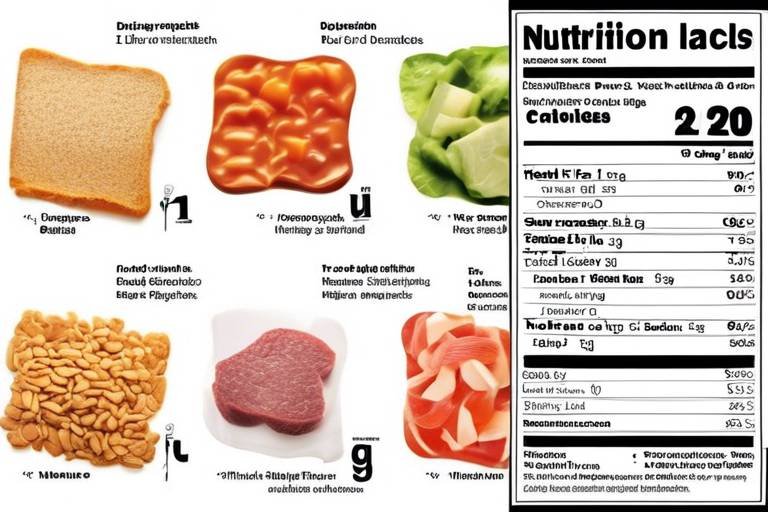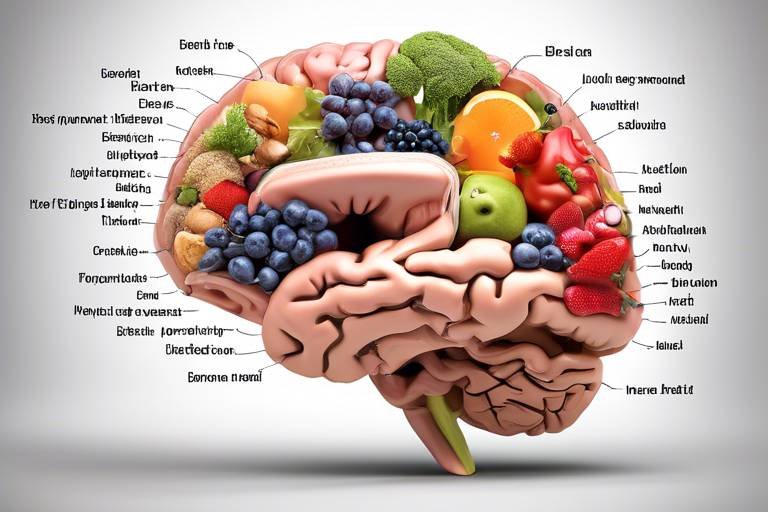How Cooking at Home Impacts Health - The Science Explained
Have you ever wondered how cooking at home can transform your health? Well, you're in for a treat! This article dives deep into the myriad ways that home cooking not only nourishes your body but also uplifts your spirit. In a world where fast food and takeout dominate our busy lives, the simple act of whipping up a meal in your own kitchen can be a game-changer. From enhancing your nutrition to boosting your mental well-being, the benefits are backed by science and expert insights. So, grab your apron and let’s explore how cooking at home can have a profound impact on your health!
When you cook at home, you gain greater control over your ingredients, which is a significant advantage for your health. Imagine being able to choose fresh vegetables, whole grains, and lean proteins instead of processed foods loaded with preservatives and unhealthy fats. Home cooking allows you to create meals that are not only delicious but also nutrient-dense. Studies show that people who prepare their meals at home consume fewer calories and have a higher intake of essential nutrients. This means you can craft a balanced diet tailored to your needs, making it easier to meet your health goals.
Cooking is not just about food; it's also a fantastic way to improve your mental health. Engaging in the process of cooking can serve as a wonderful form of therapy. Have you ever felt the stress melt away as you chop vegetables or stir a pot? This therapeutic aspect of cooking can lead to stress relief and a sense of mindfulness. The act of preparing a meal requires focus and presence, which can pull you away from the chaos of daily life and into a more peaceful state of mind.
For many, cooking is a form of self-expression. Just like painting or writing, experimenting with recipes can unleash your inner artist. Whether you're trying a new spice blend or creating a dish from scratch, the kitchen becomes your canvas. This creative outlet can boost your mood and provide a sense of accomplishment. Each dish you create is a reflection of your personality, and there’s something incredibly satisfying about sharing that with others.
As you master cooking skills, you'll notice a significant boost in your self-esteem. Each successful meal is a victory, and with practice, you'll become more confident in your abilities. This newfound confidence can encourage you to try healthier recipes and explore new cuisines, ultimately leading to better eating habits. Think of cooking as a skill that you can refine over time, much like learning to ride a bike or play an instrument.
Cooking at home often involves family and friends, creating a wonderful opportunity to strengthen relationships. Sharing the experience of preparing a meal can foster bonds and create lasting memories. Whether it’s cooking with your kids or hosting a dinner party, these shared moments can promote a sense of community and belonging. Plus, there's nothing quite like enjoying a meal together after putting in the effort to create it!
Incorporating mindfulness into your cooking routine can enhance the overall experience. By focusing on the ingredients, the textures, and the aromas, you can transform a mundane task into a meditative practice. Techniques such as deep breathing, appreciating the colors of your vegetables, or even listening to calming music while you cook can lead to healthier choices and increased satisfaction with your meals. Mindful cooking not only nourishes your body but also nourishes your soul.
Regular home cooking can lead to lasting health benefits that extend beyond just a single meal. Research indicates a strong correlation between home-cooked meals and reduced risks of chronic diseases. When you consistently prepare your meals, you’re more likely to consume a balanced diet, which can lower your chances of developing conditions like obesity, diabetes, and heart disease. It’s like investing in your health—one meal at a time!
Home cooking plays a crucial role in weight management. When you prepare meals at home, you have full control over portion sizes and ingredients. This means you can avoid the oversized portions often found in restaurants and fast food. By consciously managing what goes into your dishes, you can effectively reduce calorie intake while still enjoying flavorful meals. It’s a win-win situation!
Numerous studies have shown that individuals who regularly prepare home-cooked meals experience better health outcomes. For example, a study in the American Journal of Preventive Medicine found that people who cook at home more frequently have a lower risk of developing chronic illnesses. Cooking with fresh ingredients, avoiding processed foods, and being mindful of nutritional content can all contribute to a healthier lifestyle.
Ready to make home cooking a regular part of your life? Here are some practical tips to make it enjoyable and sustainable:
- Meal Planning: Plan your meals for the week to save time and reduce stress.
- Time Management: Dedicate specific times for cooking to make it a routine.
- Kitchen Organization: Keep your kitchen tidy and well-stocked with essentials to make cooking easier.
With these tips in mind, you’re well on your way to embracing the health benefits of home cooking!
Q: How often should I cook at home to see health benefits?
A: Ideally, aim to cook at home several times a week. The more frequently you prepare meals, the greater the health benefits.
Q: Can cooking at home really save me money?
A: Yes! Home-cooked meals are generally more cost-effective than dining out or ordering takeout, especially when you plan meals and shop smart.
Q: What if I don’t know how to cook?
A: Start with simple recipes and gradually build your skills. There are plenty of online resources and cooking classes available to help you learn!

Nutrition Benefits of Home Cooking
When it comes to maintaining a healthy lifestyle, one of the most significant advantages of home cooking is the **control** it gives you over your ingredients. Unlike dining out or grabbing takeout, cooking at home allows you to select fresh, high-quality ingredients that align with your dietary needs and preferences. This **direct influence** on what goes into your meals can lead to a more balanced diet, packed with essential nutrients. For instance, when you cook at home, you can easily incorporate a variety of vegetables, lean proteins, and whole grains into your dishes, ensuring that you meet your daily nutritional requirements.
Additionally, home cooking can help you avoid the hidden sugars, unhealthy fats, and excessive sodium often found in restaurant meals and processed foods. By preparing your meals, you can make healthier swaps—like using olive oil instead of butter or opting for whole grain pasta instead of white. This not only enhances the nutritional quality of your meals but also contributes to better overall health.
Moreover, research has shown that individuals who regularly cook at home tend to consume more fruits and vegetables. A study published in the American Journal of Preventive Medicine found that home cooking was associated with a higher intake of these vital food groups. This is crucial because fruits and vegetables are rich in vitamins, minerals, and antioxidants, which play a significant role in reducing the risk of chronic diseases.
To illustrate the nutritional benefits of home cooking, consider the following table that compares the nutritional content of a typical restaurant meal versus a home-cooked meal:
| Meal Type | Calories | Sodium (mg) | Added Sugars (g) | Vegetable Serving |
|---|---|---|---|---|
| Restaurant Meal | 800 | 1,500 | 20 | 0.5 |
| Home-Cooked Meal | 500 | 300 | 5 | 2 |
This table clearly shows that home-cooked meals can be significantly lower in calories and sodium while providing more servings of vegetables. The difference is not just in numbers; it's about the **long-term health benefits** that come from making smarter food choices.
In summary, the nutrition benefits of home cooking are profound. By taking the time to prepare meals at home, you not only enhance the quality of your diet but also set yourself up for a healthier future. So, why not roll up your sleeves and start cooking? Your body will thank you!

Mental Health and Cooking
Cooking is more than just a means to satisfy our hunger; it can be a powerful tool for enhancing our mental health. Engaging in the art of cooking allows individuals to immerse themselves in a creative process that can significantly improve their mood and overall well-being. Have you ever noticed how chopping vegetables or stirring a pot can become a form of meditation? This is because cooking provides an opportunity to practice mindfulness, enabling us to focus on the present moment and escape from the stresses of daily life.
Moreover, the act of preparing meals can serve as a form of stress relief. When you step into the kitchen and start mixing ingredients, your mind can shift from worries and anxieties to the simple act of creation. It's like entering a different world where the only thing that matters is the dish you are crafting. The rhythmic motions of slicing, dicing, and stirring can become almost hypnotic, allowing your mind to unwind. In fact, studies show that people who cook regularly experience lower levels of stress and anxiety.
Cooking also fosters a sense of accomplishment. There’s something incredibly rewarding about transforming raw ingredients into a delicious meal. This process can boost your self-esteem and confidence, especially when you try out new recipes or techniques. Think of it as a personal challenge; each meal prepared is a small victory that can lead to greater culinary skills over time. As you master new recipes, you might find yourself feeling more competent in the kitchen, which can translate to a more positive self-image.
For many, cooking is a form of self-expression. Just like painting a canvas or writing a poem, preparing a meal allows you to showcase your creativity. You can experiment with flavors, textures, and presentation, turning an ordinary dish into a culinary masterpiece. This creative freedom can be incredibly fulfilling and can lead to a sense of joy that spills over into other areas of life. It’s like being an artist, but instead of paint, you’re using spices and ingredients!
As you develop your cooking skills, you’ll likely notice a boost in your confidence. Mastering a new recipe or technique can make you feel accomplished and capable. This newfound confidence can encourage you to explore healthier eating habits, as you become more comfortable experimenting with nutritious ingredients. Imagine walking into a grocery store with the knowledge and skills to choose the best ingredients for your meals; it’s empowering!
Cooking at home often becomes a shared experience with family and friends. Whether it’s preparing a meal together or hosting a dinner party, these shared moments can strengthen relationships and foster a sense of community. Cooking together can lead to laughter, storytelling, and bonding over the love of food. It’s a wonderful way to create lasting memories and reinforce social connections, which are vital for mental health.
In conclusion, the mental health benefits of cooking are profound and multifaceted. From reducing stress to boosting creativity and building social bonds, cooking serves as a therapeutic outlet that can enhance our overall well-being. So, the next time you’re feeling overwhelmed, consider stepping into the kitchen—your mental health might just thank you for it!
- How does cooking improve mental health?
Cooking can reduce stress, enhance creativity, and foster social connections, all of which contribute to better mental health. - Can cooking be a form of therapy?
Yes, many people find cooking to be a therapeutic activity that allows them to focus and express themselves creatively. - What if I don’t know how to cook?
Starting with simple recipes can help build your confidence. There are plenty of resources available, including cooking classes and online tutorials.

Cooking as a Creative Outlet
When you think about creativity, you might picture an artist with a paintbrush or a musician strumming a guitar. But have you ever considered that cooking can be a powerful form of self-expression? Just like a blank canvas waiting for vibrant colors, your kitchen is a playground for your imagination. Each ingredient is a different hue, and every recipe is an opportunity to create a masterpiece. The beauty of cooking lies in its flexibility; you can follow a recipe or throw caution to the wind and invent your own dish. This freedom fosters a sense of creativity that can be incredibly fulfilling.
In fact, many home cooks find that experimenting with flavors and techniques can lead to delightful surprises. Have you ever tried to combine two seemingly unrelated ingredients and ended up with a dish that blew your mind? That’s the magic of cooking! It’s like being a scientist in a lab, where you can mix and match to discover new tastes. Whether you’re adding a pinch of spice or a splash of citrus, the act of creating something unique can be exhilarating.
Moreover, cooking can also serve as a therapeutic outlet. Imagine a long day at work; you come home, and instead of plopping down in front of the TV, you decide to whip up a new recipe. As you chop vegetables and sauté onions, you might find your stress melting away. The rhythmic motions of cooking can be meditative, allowing you to focus on the present moment. This mindfulness not only enhances your cooking experience but also improves your overall mental well-being.
To further embrace this creative journey, consider experimenting with different cuisines. Why not take a culinary trip around the world without leaving your kitchen? One night, you could make Italian pasta, and the next, whip up a spicy Thai curry. This exploration not only expands your palate but also introduces you to new techniques and traditions. You might even find that cooking becomes a way to connect with your heritage or learn about others.
In addition to personal satisfaction, cooking as a creative outlet can also be a way to share joy with others. Imagine hosting a dinner party where you showcase your latest culinary creations. The smiles on your friends' faces as they savor your dishes can be incredibly rewarding. Plus, sharing recipes and cooking tips can lead to new friendships and strengthen existing ones. In this way, cooking becomes not just a solitary activity but a communal experience that fosters connections.
In conclusion, the kitchen is not just a place for meal preparation; it’s a canvas for creativity, a sanctuary for mindfulness, and a hub for social interaction. So, the next time you step into your kitchen, remember that you have the power to create something special. Whether it’s a simple weeknight dinner or an elaborate feast, let your imagination run wild and enjoy the process of cooking as a true artistic endeavor.
- How can I start cooking more creatively?
Begin by experimenting with new recipes or ingredients. Don't be afraid to make substitutions or add your own twist to classic dishes!
- What are some easy ways to incorporate mindfulness into cooking?
Focus on the sensory aspects of cooking—notice the colors, textures, and aromas of your ingredients. Take your time and enjoy the process.
- Can cooking really improve my mental health?
Absolutely! Cooking can be a form of therapy, helping to reduce stress and promote relaxation.

Building Confidence in the Kitchen
Cooking is often seen as a daunting task, especially for beginners. However, is not just about mastering complex recipes; it’s about developing a sense of comfort and creativity with food. When you step into your kitchen with the intention to cook, you're not merely preparing a meal—you're embarking on a journey of self-discovery and empowerment.
One of the most effective ways to boost your culinary confidence is by starting with the basics. Familiarizing yourself with essential cooking techniques can create a solid foundation. Think of it as learning to ride a bike—you wouldn't start with tricks before you can balance, right? Here are some fundamental skills that can help:
- Chopping vegetables
- Understanding cooking methods (boiling, sautéing, baking)
- Measuring ingredients accurately
- Following recipes and making adjustments
As you practice these skills, you’ll notice a gradual increase in your confidence. Each successful dish you create acts as a building block, reinforcing your ability to tackle more challenging recipes. Moreover, experimenting with flavors and ingredients can turn cooking into an exciting adventure. Imagine whipping up a delicious stir-fry with whatever you have in the fridge—it's like being a culinary artist with a blank canvas!
Another key aspect of building confidence is embracing mistakes. Every chef, no matter how experienced, has had their share of kitchen disasters. Instead of viewing these moments as failures, consider them valuable learning experiences. Did your sauce turn out too salty? Note it down for next time and adjust accordingly. This mindset shift can transform the kitchen from a place of stress into a playground of creativity.
Finally, cooking with others can significantly enhance your confidence. Whether it's a family member or a friend, sharing the experience can alleviate pressure and make the process more enjoyable. Plus, cooking together often leads to laughter and shared memories, which can be incredibly rewarding. So, why not invite a friend over for a cooking night? You can swap recipes, share tips, and enjoy the fruits of your labor together!
In conclusion, building confidence in the kitchen is a journey that requires practice, patience, and a willingness to learn. By mastering basic skills, embracing mistakes, and sharing the experience with others, you can transform your culinary adventures into a source of joy and self-assurance. Remember, the more you cook, the more confident you’ll become—so grab those pots and pans and get started!
- How can I start cooking if I'm a complete beginner? Begin with simple recipes, familiarize yourself with basic techniques, and don’t hesitate to ask for help from friends or family.
- What are some easy meals I can try first? Consider starting with scrambled eggs, pasta dishes, or stir-fries, which are forgiving and allow for creativity.
- How do I handle mistakes in the kitchen? View them as learning opportunities! Adjust your approach next time based on what you learned.
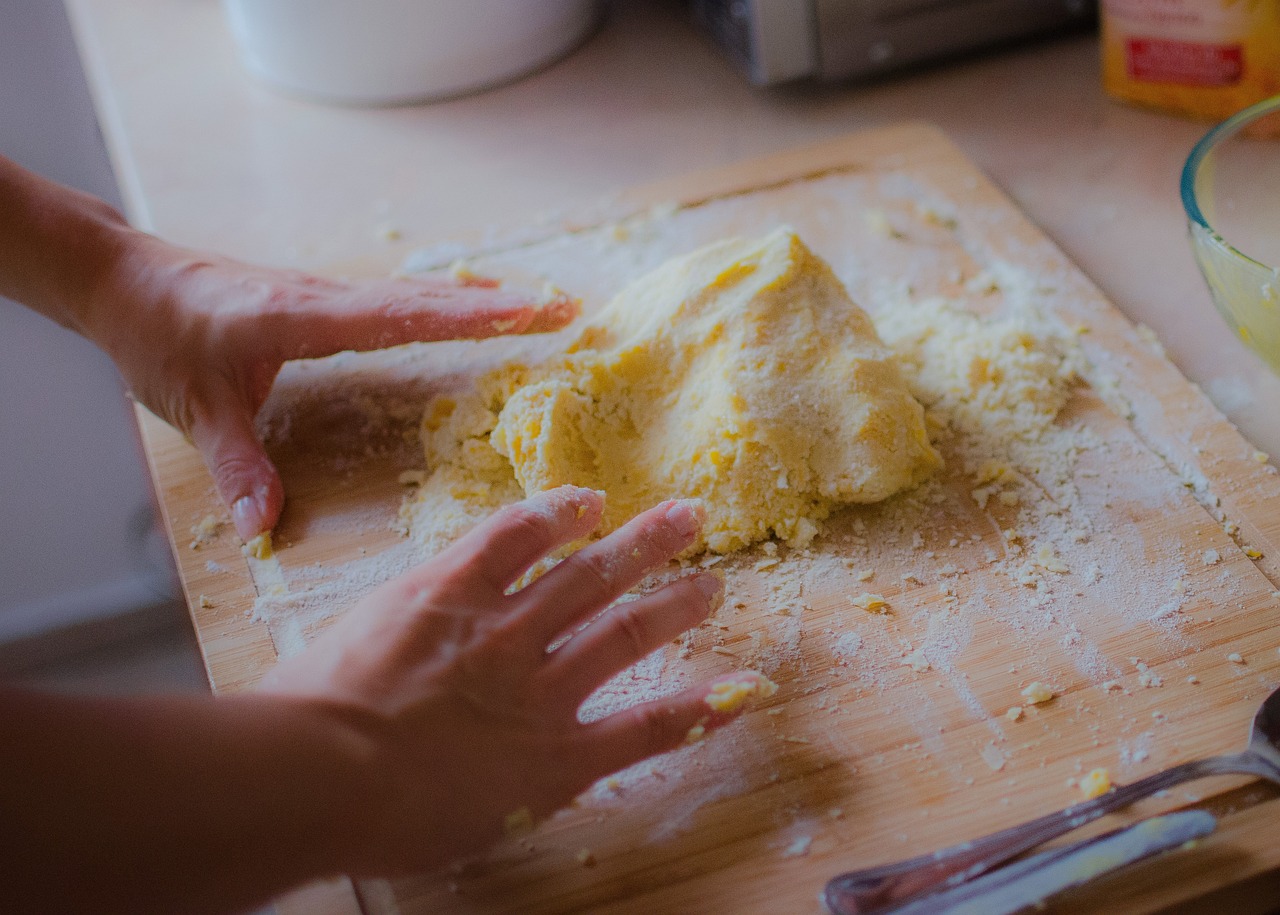
Social Connections Through Cooking
Cooking is not just about preparing meals; it’s a vibrant and engaging activity that brings people together. When you step into the kitchen, you’re not just mixing ingredients; you’re creating an atmosphere that fosters connection and community. Think about it: how many of your fondest memories are linked to the kitchen? Whether it’s a family gathering, a friend's dinner party, or a holiday celebration, cooking often serves as the backdrop for shared experiences and cherished moments.
When people cook together, they engage in a delightful dance of collaboration. It’s a chance to share stories, laugh over mishaps, and celebrate successes. Imagine chopping vegetables side by side with a loved one or passing down a family recipe to the next generation. These moments are filled with joy and learning, creating bonds that can last a lifetime. Cooking together can also serve as a wonderful opportunity to teach children essential life skills, from measuring ingredients to understanding the importance of nutrition.
Moreover, cooking can extend beyond the family unit. Inviting friends over for a cooking night or participating in community cooking classes can enhance your social circle. These interactions can lead to new friendships and strengthen existing ones. In fact, studies have shown that sharing meals can increase feelings of happiness and belonging. When you gather around a table filled with homemade dishes, you’re not just nourishing your body; you’re also nurturing your relationships.
Here are some ways cooking can strengthen social connections:
- Shared Experiences: Cooking together creates lasting memories that people cherish.
- Teamwork: Collaborating in the kitchen encourages teamwork and communication.
- Cultural Exchange: Exploring recipes from different cultures can broaden horizons and foster understanding.
- Celebration: Cooking is often at the heart of celebrations, from birthdays to holidays, bringing people together.
In essence, cooking serves as a bridge that connects us to others. It’s an activity that transcends age, culture, and background, allowing us to come together in a shared love for food. So the next time you whip up a meal, consider inviting someone to join you. You might just find that the experience is as nourishing for the soul as it is for the body.
- How can cooking improve my social life? Cooking with others creates opportunities for bonding and shared experiences, which can lead to stronger friendships and community ties.
- What are some easy recipes to cook with friends? Simple dishes like pizzas, tacos, or stir-fries are great for group cooking as they allow for customization and teamwork.
- Can cooking help with loneliness? Yes! Engaging in cooking activities, whether alone or with others, can provide a sense of purpose and connection, reducing feelings of isolation.

Mindful Cooking Practices
Cooking is not just about throwing ingredients together and hoping for the best; it can be a deeply mindful experience that enhances your overall well-being. By embracing mindfulness in the kitchen, you can transform the mundane task of meal preparation into a joyful ritual that nourishes both body and soul. One way to practice mindfulness while cooking is to focus on the process rather than the end result. This means savoring each step—whether it's chopping vegetables, stirring sauces, or seasoning dishes. When you engage fully with each action, you not only improve your cooking skills but also create a more satisfying experience.
Another essential aspect of mindful cooking is eliminating distractions. In our fast-paced world, it's easy to get caught up in multitasking—scrolling through your phone or watching TV while preparing meals. However, this can detract from the experience. Instead, consider turning off your devices, playing soft music, or simply enjoying the sounds of cooking. This allows you to immerse yourself in the sensory aspects of cooking, such as the vibrant colors of fresh ingredients, the delightful aromas wafting from the stove, and the satisfying sounds of sizzling and chopping.
Moreover, you can incorporate mindful breathing techniques into your cooking routine. Before you start, take a few deep breaths to center yourself. This practice helps clear your mind and prepares you for a focused cooking session. Throughout the process, if you find your thoughts wandering, gently bring your attention back to the task at hand. This not only enhances your cooking but also promotes a sense of calm and presence.
To further enrich your mindful cooking practice, consider the following tips:
- Choose fresh, seasonal ingredients: This connects you to the food you’re preparing and supports local agriculture.
- Experiment with new recipes: Trying new flavors and techniques can awaken your creativity and keep cooking exciting.
- Reflect on your meals: Take a moment after eating to consider the flavors and textures, fostering a deeper appreciation for your food.
Finally, remember that cooking can also be a communal activity. Invite family or friends to join you in the kitchen. This shared experience can enhance the joy of cooking, as you exchange stories, laughter, and culinary tips. By incorporating mindfulness into your cooking practices, you not only nourish your body but also cultivate a deeper connection to the food you prepare and the people you share it with.
Q: What is mindful cooking?
A: Mindful cooking involves being fully present and engaged in the cooking process, focusing on the sensory experiences and the act of preparing food rather than just the end result.
Q: How can I start practicing mindful cooking?
A: Begin by eliminating distractions, taking deep breaths before you start, and fully engaging with each step of the cooking process. Focus on the colors, textures, and aromas of the ingredients.
Q: Can cooking with others enhance mindfulness?
A: Absolutely! Cooking with friends or family can create a joyful atmosphere, allowing for shared experiences and deeper connections, which enhances the overall mindfulness of the activity.

Long-Term Health Impacts
When it comes to our health, the choices we make today can have profound effects on our future. One of the most significant choices is whether to cook at home or rely on takeout and processed foods. Research has shown that regular home cooking can lead to a myriad of long-term health benefits, making it a crucial habit for anyone looking to improve their overall well-being.
First and foremost, home cooking is linked to a reduction in chronic disease risk. Studies have consistently demonstrated that individuals who prepare meals at home tend to consume fewer calories, more fruits and vegetables, and less sugar and saturated fats. This is largely because cooking at home allows you to control the ingredients and portion sizes, which can significantly reduce the risk of conditions such as obesity, heart disease, and diabetes. For instance, a study published in the American Journal of Preventive Medicine found that people who cooked at home at least five times a week had a 47% lower risk of developing heart disease compared to those who cooked less frequently.
Moreover, the act of cooking itself can foster healthier eating habits. When you take the time to prepare meals, you’re more likely to plan ahead, which can lead to better nutritional choices. You might find yourself experimenting with whole grains, fresh vegetables, and lean proteins, which can contribute to a more balanced diet over time. This shift not only improves your immediate health but also lays the foundation for long-term dietary habits that can enhance your quality of life.
Interestingly, home cooking is also linked to improved mental health. Engaging in the culinary arts can serve as a form of therapy, allowing individuals to unwind and express creativity. The simple act of chopping vegetables or stirring a pot can be meditative, providing a much-needed break from the hustle and bustle of daily life. This connection between cooking and mental well-being is not just anecdotal; research has shown that people who cook at home report lower levels of stress and anxiety.
To illustrate the long-term health impacts of home cooking, consider the following table, which summarizes key benefits:
| Health Benefit | Description |
|---|---|
| Reduced Chronic Disease Risk | Lower likelihood of obesity, heart disease, and diabetes through healthier meal choices. |
| Improved Nutritional Quality | Increased intake of fruits, vegetables, and whole foods. |
| Enhanced Mental Health | Cooking as a therapeutic activity that reduces stress and promotes mindfulness. |
| Better Portion Control | Ability to manage portion sizes effectively, leading to healthier eating patterns. |
In addition to these benefits, home cooking encourages a sense of community and connection with others. Sharing meals with family and friends not only strengthens relationships but also promotes healthier eating habits through social support. When we cook together, we often share tips, recipes, and healthy eating practices, reinforcing a culture of wellness.
Ultimately, the long-term health impacts of cooking at home are profound and multifaceted. By making a conscious effort to prepare meals in your own kitchen, you are investing in your health and well-being for years to come. So, why not grab that apron and start whipping up some delicious, nourishing meals today?
- What are some easy recipes for beginners? Start with simple dishes like stir-fries, salads, or pasta. These require minimal ingredients and can be customized to your taste.
- How can I make time for cooking? Meal planning and prepping in advance can save time during the week. Consider dedicating one day to cook larger batches of meals.
- Is cooking at home really healthier? Yes! Home-cooked meals typically contain fresher ingredients and less added sugar and preservatives compared to restaurant food.
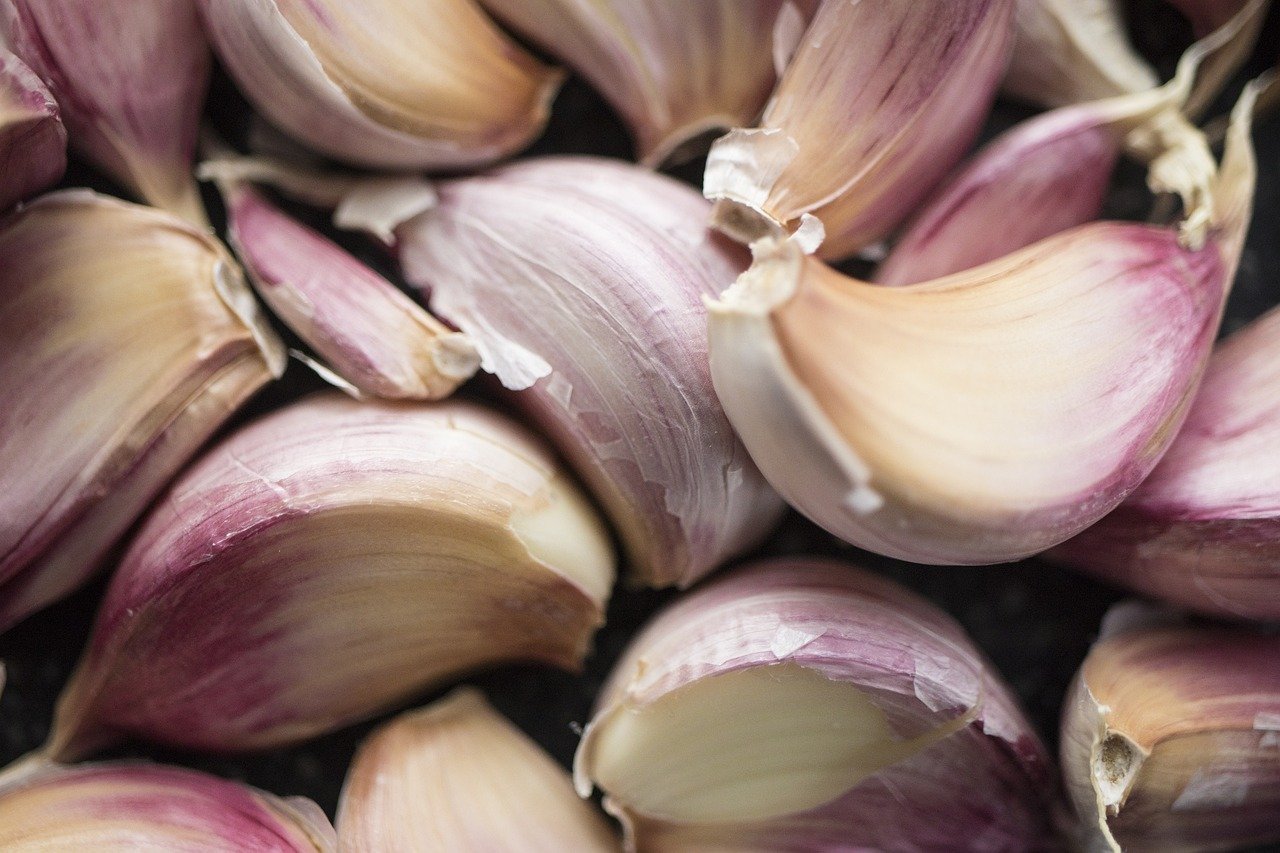
Weight Management Through Home Cooking
When it comes to weight management, home cooking is like having a secret weapon in your culinary arsenal. Why, you ask? Well, the answer lies in the control you gain over what goes into your meals. Unlike dining out or ordering takeout, where portion sizes and ingredients can be a mystery, cooking at home allows you to make conscious choices about everything from the type of oil you use to the amount of salt you sprinkle. This level of control can significantly influence your overall caloric intake and nutritional quality.
Let's break it down a bit further. When you prepare your meals, you can easily monitor portion sizes. For example, many restaurant servings are designed to be large and enticing, often leading to overeating. However, when you're cooking at home, you can serve yourself a balanced plate that aligns with your dietary goals. Consider this: a typical restaurant meal might contain up to 1,500 calories, while a homemade version of the same dish could be tailored to around 600 calories, depending on your choices. That's a substantial difference!
Moreover, home cooking encourages you to incorporate more whole foods into your diet. Fresh fruits, vegetables, lean proteins, and whole grains are typically more accessible when you're preparing meals yourself. These foods are not only lower in calories but also packed with essential nutrients that keep you feeling full longer. Here’s a quick comparison of the nutritional benefits of home-cooked meals versus takeout:
| Meal Type | Calories | Protein (g) | Fiber (g) | Saturated Fat (g) |
|---|---|---|---|---|
| Restaurant Meal | 1,500 | 30 | 5 | 20 |
| Home-Cooked Meal | 600 | 40 | 10 | 5 |
Another crucial aspect of weight management through home cooking is the ability to plan ahead. When you take the time to meal prep and plan your weekly menu, you're less likely to make impulsive food choices that can derail your diet. Having healthy meals ready to go means you're not reaching for that bag of chips or ordering pizza at the last minute. Instead, you can enjoy a delicious, home-cooked meal that aligns with your health goals.
In addition, cooking at home can foster a more mindful approach to eating. When you're involved in the cooking process, you're more likely to appreciate the food you're consuming, which can lead to better satiety signals and less mindless snacking. So, the next time you're in the kitchen, take a moment to savor the colors, textures, and aromas of your ingredients. This mindful practice can help you develop a healthier relationship with food.
Ultimately, home cooking isn't just about saving money or impressing your friends with your culinary skills; it's a powerful tool for managing your weight effectively. By taking control of your meals, you can make healthier choices, enjoy more balanced portions, and cultivate a deeper connection with the food you eat. So why not roll up your sleeves and get cooking? Your waistline will thank you!
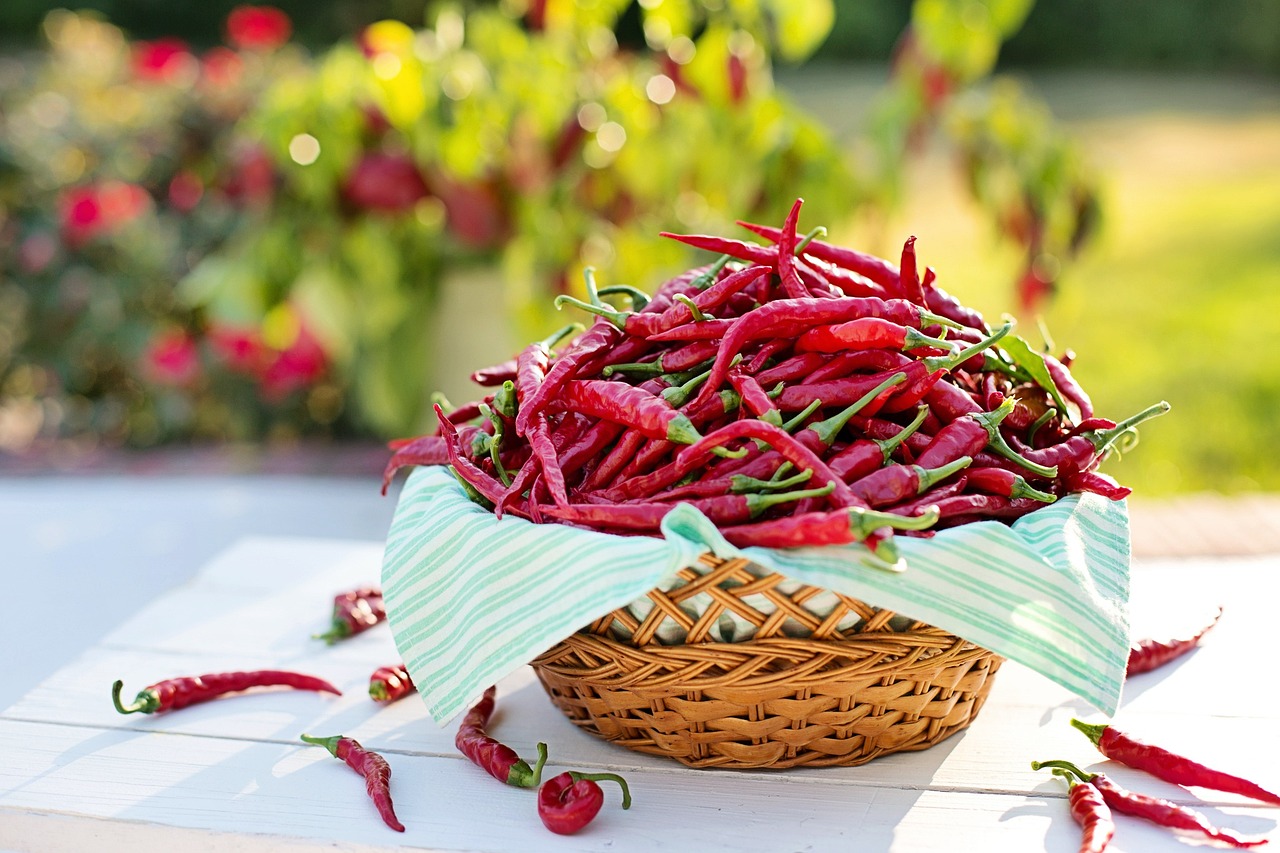
Preventing Chronic Diseases
When it comes to our health, the choices we make in the kitchen can have a profound impact on our long-term well-being. Numerous studies have demonstrated that home cooking is not just a way to whip up a meal; it can be a powerful ally in the battle against chronic diseases. Think about it: when you prepare meals at home, you have complete control over the ingredients, cooking methods, and portion sizes. This control is crucial because it allows you to make healthier choices that can significantly reduce your risk of developing conditions such as heart disease, diabetes, and certain cancers.
One of the key benefits of home cooking is the ability to incorporate fresh, whole foods into your diet. A diet rich in fruits, vegetables, whole grains, and lean proteins is essential for maintaining good health. According to research, individuals who frequently cook at home tend to consume more of these nutrient-dense foods compared to those who rely on takeout or pre-packaged meals. This shift towards healthier ingredients can lead to a lower intake of unhealthy fats, sugars, and sodium, which are often found in processed foods.
Moreover, the act of cooking at home encourages mindful eating practices. When we prepare our meals, we are more likely to pay attention to what we are putting into our bodies. This mindfulness can lead to better portion control and a greater appreciation for the food we eat. For instance, when you take the time to cook a meal from scratch, you're not just throwing ingredients together; you're creating something meaningful. This connection to our food can foster healthier eating habits that stick with us in the long run.
Additionally, numerous studies have linked home cooking to lower rates of obesity and related chronic diseases. For example, a study published in the journal Public Health Nutrition found that individuals who cooked at home regularly had a significantly lower risk of obesity compared to those who ate out frequently. This is crucial because obesity is a major risk factor for many chronic conditions.
To further illustrate the benefits of home cooking in preventing chronic diseases, consider the following table:
| Chronic Disease | Home Cooking Benefits |
|---|---|
| Heart Disease | Lower sodium intake, healthier fats, more fruits and vegetables |
| Type 2 Diabetes | Better portion control, balanced meals, reduced sugar intake |
| Certain Cancers | Increased consumption of antioxidants and phytochemicals |
In summary, the link between home cooking and the prevention of chronic diseases is clear. By choosing to cook at home, you're not just preparing meals; you're investing in your health. So, next time you find yourself reaching for that takeout menu, consider the long-term benefits of whipping up something delicious in your own kitchen. Your body will thank you for it!
- How often should I cook at home to see health benefits? Aim for at least three to four home-cooked meals per week to start noticing positive changes in your health.
- Can I still eat out and maintain a healthy diet? Yes, but try to make healthier choices when dining out, such as opting for grilled instead of fried foods and choosing salads or vegetables as sides.
- What are some easy meals I can cook at home? Consider simple recipes like stir-fries, salads, or one-pot dishes that require minimal ingredients and preparation time.

Tips for Successful Home Cooking
Cooking at home can be a delightful journey, but it can also feel overwhelming at times. To make the process smoother and more enjoyable, here are some essential tips that can transform your kitchen experience into a culinary adventure. First and foremost, meal planning is your best friend. By deciding what you'll cook for the week ahead, you can save time, reduce stress, and minimize food waste. Consider creating a simple weekly menu that aligns with your lifestyle and preferences. This not only helps you stay organized but also ensures that you have all the necessary ingredients on hand.
Next, time management is crucial. If you're juggling work, family, and other commitments, it's easy to feel rushed when preparing meals. One effective strategy is to dedicate a specific time each week for meal prep. Chopping vegetables, marinating proteins, or even cooking large batches of grains can save you precious minutes on busy nights. Think of it as setting aside time for a mini cooking session that will pay off during the week.
Additionally, kitchen organization plays a significant role in successful home cooking. A well-organized kitchen can inspire creativity and efficiency. Make sure your utensils, pots, and pans are easily accessible. Consider grouping similar items together and using clear containers for dry goods. This not only saves time but also makes cooking more enjoyable. After all, who wants to rummage through a cluttered drawer when trying to whip up a delicious meal?
Moreover, don't shy away from experimenting with recipes. Cooking is an art, and like any artist, you need to feel free to express yourself. Try new spices, combine unexpected ingredients, or tweak traditional recipes to make them your own. This not only enhances your culinary skills but also keeps the excitement alive in the kitchen. Remember, every great chef started as a novice, and making mistakes is part of the learning process.
Lastly, involve your family or friends in the cooking process. Cooking together can be a wonderful bonding experience. You can share tips, stories, and laughter, making the kitchen a warm and inviting space. Plus, it’s a great way to pass down family recipes and traditions, creating lasting memories around the dinner table. As you cook, you’re not just preparing food; you’re building connections and strengthening relationships.
- What are some easy recipes for beginners? Start with simple dishes like stir-fries, pasta, or omelets. These recipes require minimal ingredients and are quick to prepare.
- How can I make meal prep easier? Choose a day of the week to prep meals in bulk. Cook large portions and store them in the fridge or freezer for later use.
- What kitchen tools are essential for home cooking? A good knife, cutting board, pots and pans, measuring cups, and mixing bowls are fundamental tools every home cook should have.
- How can I make cooking more enjoyable? Listen to music or a podcast while you cook, invite friends over, or try new recipes to keep things exciting.
Frequently Asked Questions
- How does cooking at home improve my nutrition?
Cooking at home gives you complete control over the ingredients you use. This means you can choose fresh, whole foods and avoid unhealthy additives. By preparing your meals, you can ensure a balanced diet, rich in nutrients, which can lead to better overall health.
- Can cooking at home really affect my mental health?
Absolutely! Cooking can be a therapeutic activity. It allows you to express creativity, relieve stress, and practice mindfulness. The act of preparing a meal can be incredibly satisfying and can help improve your mood, making it a great way to boost mental well-being.
- What are some creative ways to enjoy cooking?
Experimenting with new recipes or ingredients can turn cooking into a fun adventure! You might try themed dinner nights, cooking challenges with friends, or even taking a cooking class. Each of these activities can spark creativity and make cooking feel less like a chore and more like an exciting project.
- How can I build confidence in my cooking skills?
Start with simple recipes and gradually challenge yourself with more complex dishes. Celebrate your successes, and don’t be afraid to make mistakes—they're part of the learning process! With practice, you’ll gain confidence, which can lead to healthier eating habits.
- What role does cooking play in strengthening social connections?
Cooking together with family or friends creates shared experiences that can strengthen bonds. Whether it’s a family dinner or a potluck with friends, these moments foster a sense of community and connection that can enhance relationships.
- How can I practice mindfulness while cooking?
Mindful cooking involves being present in the moment. Focus on the colors, textures, and aromas of your ingredients. Take your time, savor the process, and appreciate the effort that goes into preparing a meal. This can lead to healthier choices and greater satisfaction with your food.
- What long-term health benefits can I expect from cooking at home?
Regularly cooking at home is linked to a lower risk of chronic diseases, better weight management, and improved overall health. Studies show that those who prepare meals at home tend to consume fewer calories and more nutritious foods, leading to healthier long-term dietary habits.
- How does home cooking help with weight management?
When you cook at home, you can control portion sizes and ingredients, making it easier to manage your calorie intake. This level of control can help prevent overeating and promote healthier eating patterns, which are crucial for maintaining a healthy weight.
- Are there any tips for making home cooking more enjoyable?
Yes! Meal planning can save time and reduce stress. Organizing your kitchen makes cooking easier, and trying new recipes can keep things fresh and exciting. Don’t forget to involve family or friends to make it a fun and social activity!





